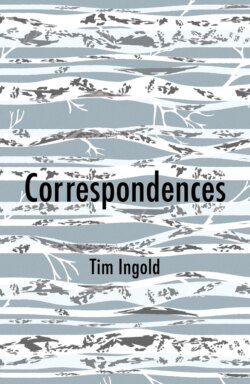Читать книгу Correspondences - Tim Ingold - Страница 15
Introduction
ОглавлениеCan there be any better example of conviviality, of living and growing together, than the trees of a wood? They are so much more sociable than people. Humans come and go, obsessed by passing troubles. But trees stand their ground. They tell tales, they communicate among themselves; older trees watch over young saplings, which sprout amidst the roots of their forebears. We humans are but diminutive eavesdroppers on their long, majestic conversations. Enter the woods, then, as into a library or a cathedral, with a certain reverence. Sociology begins here, in your studies with the trees. Ahead of you, like rows of books on the shelves, or the columns of the nave, are the serried ranks of trunks. Each trunk – each codex, as the ancients called both trunk and book – holds its story, not between its covers, as with the book, but up aloft, as with the fan-vaulting of the cathedral roof or the branching tracery of its windows. You’ll need to strain your neck to read it.
Peer closely into the canopy, listen intently, feel the textures of bark and moss as if they were under your skin or fingernails. No doubt you feel more alive in the presence of trees. Yet to us, they seem to speak in riddles. Even as we strain to decipher their meanings, we sense no progress towards clarity. In the woods, everything is so complicated! It is, quite literally, folded together – from the Latin com, ‘together’ plus plicare, ‘to fold’. Of the trees that gather there, we cannot say where one ends and another begins. They don’t adjoin or abut like fragments of a mosaic, or square up back to back, each sunk into itself. Rather, they fold over and into each other as they go along. Observe the ground, riddled with roots that threaten to trip you up, the ridged and furrowed tree bark, the ruffled wind-swept mass of foliage. Every line of the gathering is a fold in the fabric of a crumpled world.
But crumples are alien to our desire for order. We prefer a world that answers to the call of reason. Whenever we build or make, we endeavour to straighten things out, to simplify. We like external surfaces to be smooth and flat, and angles sharp. Perhaps we envy the trees their complicated conviviality. We cannot countenance the thought that they might enjoy a way of living together, in peace and tranquillity, that to us remains unfathomable. ‘It’s them or us,’ we say; ‘there’s no more room for both.’ Needing land for cattle and plantations, timber for ships and cellulose for the paper industry, humans through history have hacked the woods, or put them to the torch. Even as I write these lines, regions of the planet are in flames, their inhabitants fleeing for their lives. After the conflagration, the woods will once more rise from the ashes. But human society? Maybe; but maybe not.
